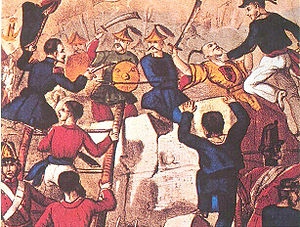
What happened during The Opium Wars?
For many years, China was a very isolated country from the rest of the world. They had a mentality that their culture was superior to others. They were not influenced by European culture. In the Opium Wars, the British wanted to make money and trade with China. China exported tea to Britain, which was very popular during the 18th century. China felt like they did not need anything from Britain. It was during this period of time that Britain found a very addictive drug in India that they could use to export to China.
Why are they called The Opium Wars?
Opium was a highly addictive drug that was destroying the Chinese people. By the 19th century, nearly 10 percent of the Chinese population was smoking opium. China had to find more gold, silver, tea, and other products to pay for the opium. Eventually, opium weakened the Chinese and the emperor decided that it was time to end the Opium trade with Britain. The Chinese government put an end to the Opium trade and set up a law that it was illegal to sell Opium for smoking purposes. It was serious enough that it was in the same category as murder.
While this law did stop local dealers from selling opium, British continued to sell opium to China. Because British men were smuggling opium into China, war broke loose.
Who won and why?
England won. Technologically, the Chinese were no match for the British. England had superior technology and weapons.

